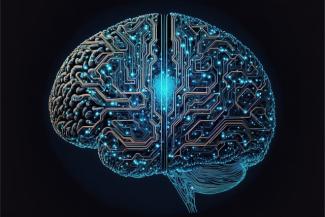Could Artificial Intelligence Lead to New Claims Against Lawyers?
Judith Thompson 18-07-2024
There is a debate raging amongst lawyers about whether artificial intelligence should be seen as a threat to the profession, or whether it ought to be embraced.
The Master of the Rolls, Sir Geoffrey Vos, has recently given a speech to the Professional Negligence Bar Association, focussing on this divide. He said that on one hand the ‘luddites’ are skeptical about the role which AI should be allowed to have in providing legal advice to clients, which should be limited as much as possible and only used in limited circumstances. There are of course also concerns that lawyers could be put out of work by the emerging technology.
On the other side of the fence, are lawyers who believe AI should be embraced as it can complete tasks such as processing large amounts of data, more quickly and more efficiently than humans.
But what about clients? How do they feel about getting their legal advice from a machine rather than a human? There are of course some who would be happy not to have to pay lawyers' fees, but of course a machine cannot empathise with a client in the way a human can.
If lawyers are going to regularly rely on AI to undertake research, produce advice for clients or to analyse data, who will check that the machine has got it right? The only answer to this at present is that the work of AI would have to be checked by a human lawyer to ensure its accuracy. Any lawyer sending AI generated advice to clients without checking its accuracy, is simply asking for trouble.
As far as we are aware, no lawyers have been sued yet for providing inaccurate advice which was generated by AI, but no doubt that day will come. Under the current principles of negligence law, it would of course be the lawyers who used the AI to produce their advice who would be sued, if that advice was incorrect. There is simply nobody else for the client to blame. It is very unlikely to be any defence to a negligence claim to say the advice was actually produced by AI. If that defence ever was successfully deployed by a negligent lawyer, all lawyers would be well advised to only send clients AI generated advice. It's very hard to imagine that this could ever happen.
Although it may take lawyers time to make the most of the advantages of artificial intelligence, it will undoubtedly take the law itself a good while longer to catch up.
At Samuels, we are experts in providing advice regarding all aspects of professional negligence claims. If you think that your lawyer's advice was wrong, you may be able to sue them for compensation. Contact us to find out how we can help.
Article credit: Romy Cooper

